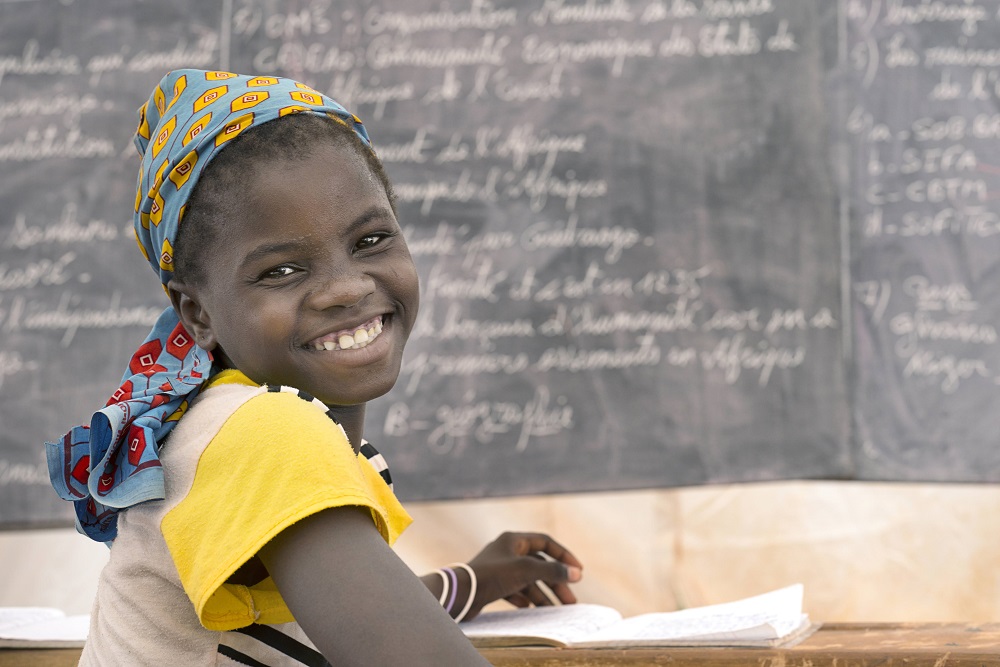
On the 30th anniversary of the Convention on the Rights of the Child – the world’s most widely ratified human rights treaty – Zimbabwe and Burkina Faso became the world's newest pathfinding countries. Once a country becomes pathfinding, they commit to prioritising children's safety by making a formal, public commitment to ending all forms of violence against children; appointing a senior government focal point to lead the in-country process; and developing an evidence-based and costed national action plan that sets commitments for three to five years, along with a related resource mobilization plan and other activities.
“Zimbabwe became a pathfinder country to join a league of nations committed to ending violence against children. From this partnership, Zimbabwe hopes to learn from fellow pathfinding countries, share experiences of progress and challenges, and be connected to external expertise on ending violence against children.”
These announcements build on years of progress in both Zimbabwe and Burkina Faso. Zimbabwe, for example, completed a comprehensive study on violence against children in 2013. Zimbabwe’s constitution also has a full section dedicated to children’s safety and well-being, the Children’s Bill of Rights. In Burkina Faso, the government has been pushing towards ending child labour by piloting a monitoring system, training law enforcement officials, and validating a national strategy to combat the worst forms of child labour. In addition, 45 provinces of Burkina Faso are already covered by child protection networks.
“Becoming a pathfinding country is a way for Burkina Faso to reaffirm the government’s engagement in the protection of children,” said Frederic Guirlene, the head of the child protection programme at UNICEF Burkina Faso. “It also gives us the opportunity to share our experiences with other countries to contribute to the reduction of violence everywhere in the world.”
Such high-level commitment is critical, especially in countries like Zimbabwe and Burkina Faso, where 48 per cent and 64 per cent of all citizens are children. Still, we have a long way to go to ensure every child in these countries grows up free from violence. As of today, in Zimbabwe, more than a quarter of all children experience physical, sexual or emotional violence. Nearly one in ten girls have experienced sexual violence. And 25 per cent of school-age children are out of school. In Burkina Faso, more than half of girls are married before their 18th birthday. Nearly 40 per cent of children are engaged in child labour. And nearly 90 per cent of children aged 0-11 experience physical violence in their homes.
By becoming pathfinders, Zimbabwe and Burkina Faso have committed to changing these statistics and helping children live the lives they deserve. Since the pathfinding initiative began in 2016, seven African countries have committed to becoming pathfinders, including Uganda, Tanzania, South Africa, Nigeria and Côte d'Ivoire.
“Violence against children must be eliminated, as it will affect Zimbabwe’s vision for 2030 – one that aims at holistic development tied to the Sustainable Development Goals. Our dream is for a Zimbabwe where children are protected from all forms of abuse and exploitation, and an environment where all the needs of children are met.”
Within 18 months of becoming a pathfinding country, governments are expected to:
- Appoint a senior government focal point to lead the in-country process;
- Convene and support a multi-stakeholder group on ending violence against children;
- Collect, structure and analyse relevant data;
- Develop an evidence-based and costed national action plan that sets commitments for three to five years, along with a related resource mobilisation plan;
- And consult with children and adhere to partnership standards on child participation.
End Violence looks forward to supporting our partner governments on this journey and working together to make the world a safer place for children.
“Our hope is that all children in Burkina Faso can enjoy a safe environment where their needs are covered and their rights are respected. We dream of a Burkina Faso with zero tolerance for violence against children.”